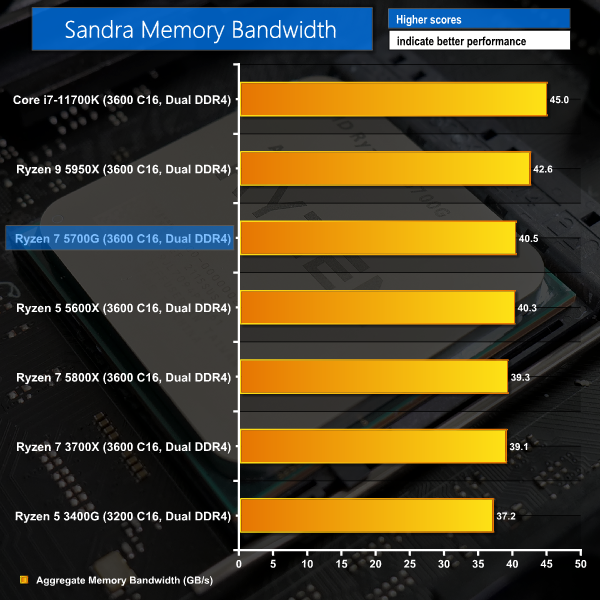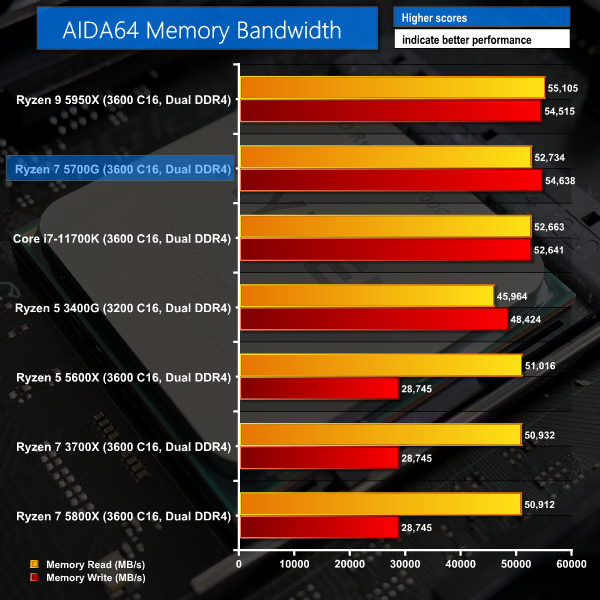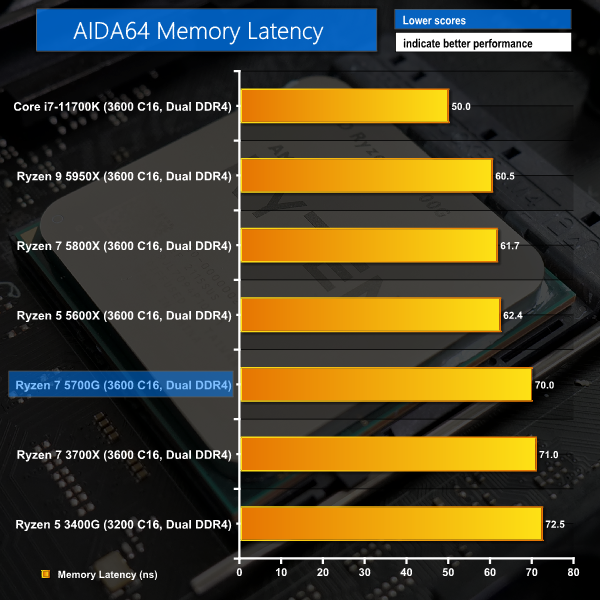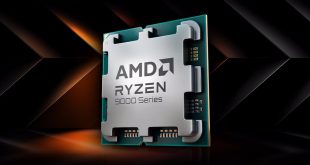Sandra Memory Bandwidth
AIDA64 Memory Performance
The monolithic die Ryzen 7 5700G does not suffer with the half-speed write penalty of single-CCX Zen 2 and 3 desktop chips. This allows the Ryzen 7 5700G to report greater memory write bandwidth versus the likes of the Ryzen 7 5800X and Ryzen 5 5600X. AMD’s APU’s numbers are comparable to that of the Intel Core i7-11700K in AIDA, though the Sandra memory bandwidth test did prefer the Intel architecture by quite a healthy margin.
And in terms of memory latency, the 5700G was not up to the Zen 3 desktop CPU standard, which is a little surprising. We expect that this is perhaps tied to the reduction in L3 cache and/or the monolithic SoC layout versus the X parts’ IO die.
Oddly enough, the Sandra Cache and memory latency test also showed around 15% poorer latency for the 5700G versus Zen 3 desktop chips. One of the key benefits of the monolithic SoC design was meant to be reduced latencies thanks to all components being on a single slab of silicon. That’s not the case according to our brief testing.
 KitGuru KitGuru.net – Tech News | Hardware News | Hardware Reviews | IOS | Mobile | Gaming | Graphics Cards
KitGuru KitGuru.net – Tech News | Hardware News | Hardware Reviews | IOS | Mobile | Gaming | Graphics Cards





